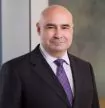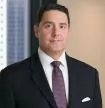- within Litigation and Mediation & Arbitration topic(s)
- in Asia
WHEN ORRICK WAS LOOKING TO HIRE more veteran and military spouse attorneys, the firm first sought a place to source veterans who are lawyers. There were none. So, the firm decided to create one.
In May 2015, the first-ever Veterans' Legal Career Fair was held in Washington, D.C. The two-day event featured two panel discussions, a networking reception, and a full day of one-on-one interviews. More than 150 veteran, active duty and military spouse lawyers participated in approximately 400 individual interviews with more than 40 legal employers, including global law firms, leading corporations, government agencies and non-profit organizations. Based on the enthusiastic feedback from candidates and employers alike, the Second Annual Veterans' Legal Career Fair was held this past spring. Participation figures were on par with the inaugural event, with more than 150 candidates once again participating in close to 400 interviews.
From this consistent level of interest, it's clear that the Veterans' Legal Career Fair has filled a void in the legal community. At the inaugural event, one candidate noted, "Not only was it a great opportunity to meet with potential employers, but I loved networking with other veterans and veteran's spouses. It was a unique way for me to continue to explore my identity as a young lawyer and learn from other similarly-situated professionals." Employers have also repeatedly praised the career fair, with one saying, "We are really happy with the people we've met—we think some really good things are going to come of this."
With two successful events now in the books, the Orrick team got together to discuss how they created this distinctive event, lessons learned, and what may be in store for future Veterans' Legal Career Fairs. The conversation included Orrick Chairman Mitch Zuklie; Partner Lorraine McGowen, Co-Chair of Orrick's Diversity & Inclusion initiatives; Senior Associate Steve Lessard, who served in the U.S. Navy as a Surface Warfare Officer; and Partner Nik Mathews, who served as a U.S. Army Reserve Captain and Judge Advocate. Lessard and Mathews co-lead Orrick's Veterans Forum.
Q. What initially inspired you to create a career fair specifically targeting veteran lawyers?
Mitch: The idea grew out of a conversation we began at Orrick about three years ago when we were looking for a way to hire more veteran lawyers. What began as a brainstorm about how we could better tap into this unique and diverse talent pool, quickly turned to the question of how we could help galvanize support for veteran hiring across the legal profession. Once we realized that there was no legal career fair in the United States that focused specifically on veteran and military spouse lawyers, we decided to fix that.
Q. Creating an event like this involves a lot of different moving parts. What were some of the first steps you took?
Mitch: We recruited a terrific team of founding sponsors to help us launch the event: Microsoft, Morgan Stanley, American Lawyer Media, The American Legion, D.C. Diverse Partners Network and Shearman & Sterling. Not only was their support crucial to the inaugural event's success, but all of them returned for the second year. Their consistent, enthusiastic support broadened our reach and helped maintain our momentum after the inaugural event.
Lorraine: We also leveraged our experience with the Bay Area Diversity Career Fair, an event we founded more than a decade ago in collaboration with The Bar Association of San Francisco. One of the things that has made that career fair so successful is the inclusion of panel discussions on topics that will help the candidates succeed. Because of that, we knew we wanted to make panel discussions part of the Veterans' Legal Career Fair. Another element we adapted from the Bay Area Diversity Career Fair was allowing employers to screen candidate resumes before the event. This ensures that employers are matched with candidates that best suit their particular needs, so that everyone gets the maximum value out of their day of interviews.
Q. What was the biggest surprise in putting together this event?Steve: One of the big unknowns for us was how much interest we would receive from military spouse lawyers, who often have a difficult time maintaining their practice due to frequent moves necessitated by their husbands and wives in active service. Groups like the Military Spouse JD Network (MSJDN) are lobbying states to make it easier for military spouses to receive temporary bar licenses.
Nik: MSJDN were quite enthusiastic about the Veterans' Legal Career Fair from the very beginning. Their advocacy was helpful in getting the word out to military spouses, who comprised approximately 30 percent of this year's candidate pool. Raising awareness of the unique issues military spouse lawyers face helped make employers aware of another untapped talent pool—and also helped make the Veterans' Legal Career Fair distinctive. Q. What have been some of the highlights for you personally? Steve: Meeting active duty service members and veterans from around the world and hearing their stories has been the singular highlight. We've had candidates travel from around the world to attend the event—including from posts as far away as Germany and Uganda. That they were willing to make the trek to Washington, D.C. for the career fair, often at their own expense, confirms that the event is filling a very important need. As one JAG transitioning out of the Army told us, "When you're in the military, you need to be ready for that story to end. This is great prep for the epilogue."
Nik: One of the most rewarding things that happened this year was the participation of two alumni of the first Veterans' Legal Career Fair, Olaseni Bello and Jaime Turner, in our Saturday morning panel discussion. After interviewing at last year's event, Olaseni was hired as vice president, legal & compliance at Morgan Stanley, and Jaime became an associate at Schulte Roth & Zabel. Both Olaseni and Jaime were able to off er candidates valuable advice on interviewing, and on adjusting to a fl atter "chain of command" compared with the hierarchy of the military. Seeing how successful they have been in making the transition to their new careers was inspirational for many of this year's candidates. Lorraine: Both of our inspirational keynote speakers have defi nitely been highlights. Last year, we were honored to welcome the Honorable Robert Rigsby, Associate Judge of the District of Columbia Superior Court. Before retiring from the U.S. Army with the rank of colonel, Judge Rigsby served as commander of the 150th Legal Support Organization—the only military judge's unit in the United States Army Reserve—and Chief Reserve Trial Judge. This year, we were privileged to host retired U.S. Air Force Colonel. Will A. Gunn, former general counsel of the U.S. Department of Veterans Aff airs and owner of his own consulting service. Both had incredible insights to share about their military service and their legal careers. Mitch: above all the event has helped everyone express our shared belief about the value veterans bring to the legal profession as a result of their training and service.
Q. What advice would you give to law firms and other organizations looking to launch new diversity initiatives like the Veterans' Legal Career Fair?
Mitch: What made this program powerful was that fi rms and in-house counsel came together to tackle an issue that we all care about. Working with veterans associations and ALM broadened our reach. We were able to create a real community around this event and keep it going through social media.
Lorraine: Many of our clients actively support veterans programs and other diversity initiatives, so we knew they would jump at the chance to participate in such a great event. After all, not only would it benefi t the veterans who were seeking jobs, it would benefi t the employers by giving them access to this highly diverse talent pool. Employers should and do want to hire more veterans—this was an opportunity for them to do so.
Q. What can we expect from future Veterans' Legal Career Fairs?
Steve: Every year we aim to improve the event based on the feedback we receive from candidates and employers. After the inaugural event, we received requests for guidance in preparing for interviews. So, we added a Candidate Preparation Program as part of this year's registration process.
Nik: The program matched candidates with Orrick lawyers—including many members of our Veterans Forum—for resume reviews and one-on-one advice on how to translate the unique skills and experience they acquired in military in a way that would resonate with civilian employers. The feedback for this program was strong, both from candidates who appreciated the program and employers who noted the increased levels of preparedness among this year's candidates. It's something we want to repeat and build on next year. Lorraine: We're looking at other ideas to make this experience as meaningful as possible and to create connectivity throughout the year.
Lorraine: We're looking at other ideas to make this experience as meaningful as possible and to create connectivity throughout the year.
The content of this article is intended to provide a general guide to the subject matter. Specialist advice should be sought about your specific circumstances.





